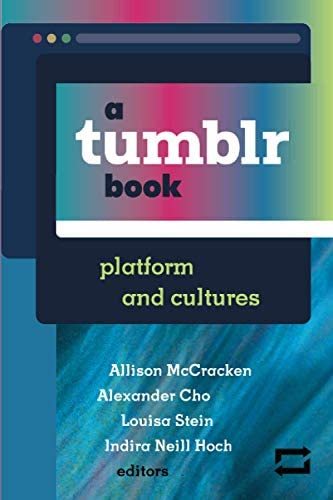#academic culture
Text
The difficulty of proper academic comportment, dress, and relationships
As a female academic I am held to a very different standard to male academics in regards to physical appearance and this has only become more true as I've gone from undergrad to graduate student. At this point, I have to essentially dress for a job interview all the time, which luckily is quite natural for me as I've always preferred business casual clothes but moreover makeup and a splash of perfume and jewelry have also become staples. This is further complicated by the fact I don't have a full length mirror in my room, so dressing has become more difficult. Furthermore, as my goal is to become a professor, I need to think of my appearance and comportment in a very pragmatic way so as to further my chances.
I recently read an Economist article titled ' The Economics of Thinness' and it very poignantly made the case that being thinner, especially for women, raises employment outcomes and pay. I have always been on the larger side, never obese or even seeming as big as I really am. I swam competitively and I still lift weights and play several sports and at 5ft 8, my weight is quite well distributed. Most people would guess I weight 160-170lbs just on the edge of a healthy BMI but I in fact am 200lbs, well within the overweight BMI category. Since starting my PhD I've lost some weight and gained quite a bit of muscle from thrice weekly lifting sessions to deal with the stress alongside skipping breakfasts and sometimes lunches due to being busy but either way I'm larger than is economically ideal. Since I've lost weight I've noticed a social shift as well. Another great article is by Alana Massey titled 'You're Right, I Didn't Eat That' where she discusses the social benefits of thinness and her own need to maintain her thinness. She examines her own behaviour as half pragmatism and half pathology, making clear that it is not effortless, as I think so many of us assume when we see other women with prominent clavicles and flat stomachs. I feel I'm also in the same semi-pathological state occasionally, I need to go to the gym or get 10 000 steps but I don't need breakfast other than a coffee and splash of milk. Again, I'm not that thin yet but I'm working my way towards it, not because I hate my body or have self esteem issues (although I'd be lying if I said that those don't also factor in) but because I love what I do and I want to do it for a living. If I need to never eat breakfast again for my field I'd do it in a heartbeat. It doesn't help that I'm quite a competitive person and have been trying to get back into swimming again as I have free access to my university pool... Another issue is clothes, makeup, and jewelry. I've been updating all of these things as I want to seem sophisticated and intelligent as well as attractive. This Christmas I'm treating myself to some very nice jewelry and lipsticks, which are extremely expensive, and I keep a collection of perfume samples. Eventually I should buy a full size perfume of my choosing as I actually wear perfume most days now but it is all so very expensive!!! Same thing with clothes, I either need to take clothes in or buy new clothes as I've lost weight but its quite expensive for a student!
Dating is another aspect of my life which is important but frustrating. I would like to be married and have a child before my mid 30s. I have a long time sure but due to my commitment to my career and studies I've never been in a committed relationship. Even now that I'm actively looking to date, I get overwhelmed by my nerves and emotions and basically decide that dating is not worth the hassle due to fear. Academia also complicates the idea of having a partner as I will go all over the world for my job and whoever I'm with should support that and be willing to help and while a lot of women will do that for their men, the same can't be said for most men.
Anyways, in all of these things I think I'm headed down the right roads I just need to keep to the course and commit myself to them. I'm planning on starting swimming 4-5 times a week once I get off break so hopefully that will work out.
Thanks for reading x.
Hon.E
#phd#phdblr#phdjourney#phd life#beauty standards#academic#women in academia#female academic#makeup#weight loss#fashion#academic culture#dark academia#light academia#chaotic academia#mypost
9 notes
·
View notes
Link
5 notes
·
View notes
Text
I don’t hate a culture focused on success and ambition, but I hate a culture where the lack of success and ambition in *any area* is frowned upon.
we have to create and have ambition. we have to explore and store memories safely into the past in case our future selves regret their absence. when we take in art, it is either as a mindless consumption to rest before we throw ourselves into creating again or as inspiration for what we’ll create in the future.
there’s no true importance put on appreciating the creations of others, in finding wonder in what already exists, in loving art beyond how it can benefit our marketable skills.
#dark academia#hustle culture#problematic behavior#art commentary#academia#academic culture#art culture#humanities#studyblr#bookblr#personal#rant#text post#text#.text#euphrosynthetic
18 notes
·
View notes
Text
the fact that shakespeare was a playwright is sometimes so funny to me. just the concept of the "greatest writer of the English language" being a random 450-year-old entertainer, a 16th cent pop cultural sensation (thanks in large part to puns & dirty jokes & verbiage & a long-running appeal to commoners). and his work was made to be watched not read, but in the classroom teachers just hand us his scripts and say "that's literature"
just...imagine it's 2450 A.D. and English Lit students are regularly going into 100k debt writing postdoc theses on The Simpsons screenplays. the original animation hasn't even been preserved, it's literally just scripts and the occasional SDH subtitles.txt. they've been republished more times than the Bible
#due to the Great Data Decay academics write viciously argumentative articles on which episodes aired in what order#at conferences professors have known to engage in physically violent altercations whilst debating the air date number of household viewers#90% of the couch gags have been lost and there is a billion dollar trade in counterfeit “lost copies”#serious note: i'll be honest i always assumed it was english imperialism that made shakespeare so inescapable in the 19th/20th cent#like his writing should have become obscure at the same level of his contemporaries#but british imperialists needed an ENGLISH LANGUAGE (and BRITISH) writer to venerate#and shakespeare wrote so many damn things that there was a humongous body of work just sitting there waiting to be culturally exploited...#i know it didn't happen like this but i imagine a English Parliament House Committee Member For The Education Of The Masses or something#cartoonishly stumbling over a dusty cobwebbed crate labelled the Complete Works of Shakespeare#and going 'Eureka! this shall make excellent propoganda for fabricating a national identity in a time of great social unrest.#it will be a cornerstone of our elitist educational institutions for centuries to come! long live our decaying empire!'#'what good fortune that this used to be accessible and entertaining to mainstream illiterate audience members...#..but now we can strip that away and make it a difficult & alienating foundation of a Classical Education! just like the latin language :)'#anyway maybe there's no such thing as the 'greatest writer of x language' in ANY language?#maybe there are just different styles and yes levels of expertise and skill but also a high degree of subjectivity#and variance in the way that we as individuals and members of different cultures/time periods experience any work of media#and that's okay! and should be acknowledged!!! and allow us to give ourselves permission to broaden our horizons#and explore the stories of marginalized/underappreciated creators#instead of worshiping the List of Top 10 Best (aka Most Famous) Whatevers Of All Time/A Certain Time Period#anyways things are famous for a reason and that reason has little to do with innate “value”#and much more to do with how it plays into the interests of powerful institutions motivated to influence our shared cultural narratives#so i'm not saying 'stop teaching shakespeare'. but like...maybe classrooms should stop using it as busy work that (by accident or designs)#happens to alienate a large number of students who could otherwise be engaging critically with works that feel more relevant to their world#(by merit of not being 4 centuries old or lacking necessary historical context or requiring untaught translation skills)#and yeah...MAYBE our educational institutions could spend less time/money on shakespeare critical analysis and more on...#...any of thousands of underfunded areas of literary research i literally (pun!) don't know where to begin#oh and p.s. the modern publishing world is in shambles and it would be neat if schoolwork could include modern works?#beautiful complicated socially relevant works of literature are published every year. it's not just the 'classics' that have value#and actually modern publications are probably an easier way for students to learn the basics. since lesson plans don't have to include the#important historical/cultural context many teens need for 20+ year old media (which is older than their entire lived experience fyi)
23K notes
·
View notes
Text
an intense hatred of capitalism vs an intense love of trinkets
#crowcore#cryptid culture#chaotic academia#cryptidcore#chaotic academic aesthetic#gremlincore#gremlin culture#anti capitalism#i promise i’m still a communist i just also like little things
28K notes
·
View notes
Text

#dark academia#dark academy#dark victorian#dark royalcore#dark royal aesthetic#dark tones#dark royalty#sirencore#piratecore#pirate aesthetic#dark victorian aesthetic#light academia#vampire culture#vampirecore#19th century#goblincore#dark academism#classicalcore#dark academic aesthetic#light academy#vampireaesthetic#vamp core#vampcore#vampyre#vampyir#vampyr#vampire goth#cemetry
8K notes
·
View notes
Text
orange peel theory this pomegranate peel theory that. but have you thought about badaam peel theory? when they soak the almonds overnight and peel them in the morning for you. now that right there is love at its peak.
#desi tumblr#desiblr#desi tag#desi aesthetic#poetry#poets corner#indian dark academia#desi culture#desi poetry#desi stuff#desi dark academia#indian poetry#light acadamia aesthetic#desi light academia#indian light academia#dark academic aesthetic#love#orange peel theory#desi love#desi things#indian tumblr
633 notes
·
View notes
Text
Every now and then I think about how subtitles (or dubs), and thus translation choices, shape our perception of the media we consume. It's so interesting. I'd wager anyone who speaks two (or more) languages knows the feeling of "yeah, that's what it literally translates to, but that's not what it means" or has answered a question like "how do you say _____ in (language)?" with "you don't, it's just … not a thing, we don't say that."
I've had my fair share of "[SHIP] are [married/soulmates/fated/FANCY TERM], it's text!" "[CHARACTER A] calls [CHARACTER B] [ENDEARMENT/NICKNAME], it's text!" and every time. Every time I'm just like. Do they though. Is it though. And a lot of the time, this means seeking out alternative translations, or translation meta from fluent or native speakers, or sometimes from language learners of the language the piece of media is originally in.
Why does it matter? Maybe it doesn't. To lots of people, it doesn't. People have different interests and priorities in fiction and the way they interact with it. It's great. It matters to me because back in the early 2000s, I had dial-up internet. Video or audio media that wasn't available through my local library very much wasn't available, but fanfiction was. So I started to read English language Gundam Wing fanfic before I ever had a chance to watch the show.
When I did get around to watching Gundam Wing, it was the original Japanese dub. Some of the characters were almost unrecognisable to me, and first I doubted my Japanese language ability, then, after checking some bits with friends, I wondered why even my favourite writers, writers I knew to be consistent in other things, had made these characters seem so different … until I had the chance to watch the US-English dub a few years later. Going by that adaptation, the characterisation from all those stories suddenly made a lot more sense. And the thing is, that interpretation is also valid! They just took it a direction that was a larger leap for me to make.
Loose adaptations and very free translations have become less frequent since, or maybe my taste just hasn't led me their way, but the issue at the core is still a thing: Supernatural fandom got different nuances of endings for their show depending on the language they watched it in. CQL and MDZS fandom and the never-ending discussions about 知己 vs soulmate vs Other Options. A subset of VLD fans looking at a specific clip in all the different languages to see what was being said/implied in which dub, and how different translators interpreted the same English original line. The list is pretty much endless.
And that's … idk if it's fine, but it's what happens! A lot of the time, concepts -- expressed in language -- don't translate 1:1. The larger the cultural gap, the larger the gaps between the way concepts are expressed or understood also tend to be. Other times, there is a literal translation that works but isn't very idiomatic because there's a register mismatch or worse.
And that's even before cultural assumptions come in.
It's normal to have those. It's also important to remember that things like "thanks I hate it" as a sentiment of praise/affection, while the words translate literally quite easily, emphatically isn't easy to translate in the sense anglophone internet users the phrase.
Every translation is, at some level, a transformative work. Sometimes expressions or concepts or even single words simply don't have an exact equivalent in the target language and need to be interpreted at the translator's discretion, especially when going from a high-context/listener-responsible source language to a low-context/speaker-responsible target language (where high-context/listener responsible roughly means a large amount of contextual information can be omitted by the speaker because it's the listener's responsibility to infer it and ask for clarification if needed, and low-context/speaker-responsible roughly means a lot of information needs to be codified in speech, i.e. the speaker is responsible for providing sufficiently explicit context and will be blamed if it's lacking).
Is this a mouse or a rat? Guess based on context clues! High-context languages can and frequently do omit entire parts of speech that lower-context/speaker-responsible languages like English regard as essential, such as the grammatical subject of a sentence: the equivalent of "Go?" - "Go." does largely the same amount of heavy lifting as "is he/she/it/are you/they/we going?" - "yes, I am/he/she/it is/we/you/they are" in several listener-responsible languages, but tends to seem clumsy or incomplete in more speaker-responsible ones. This does NOT mean the listener-responsible language is clumsy. It's arguably more efficient! And reversely, saying "Are you going?" - "I am (going)" might seem unnecessarily convoluted and clumsy in a listener-responsible language. All depending on context.
This gets tricky both when the ambiguity of the missing subject of the sentence is clearly important (is speaker A asking "are you going" or "is she going"? wait until next chapter and find out!) AND when it's important that the translator assign an explicit subject in order for the sentence to make sense in the target language. For our example, depending on context, something like "are we all going?" - "yes" or "they going, too?" might work. Context!
As a consequence of this, sometimes, translation adds things – we gain things in translation, so to speak. Sometimes, it's because the target language needs the extra information (like the subject in the examples above), sometimes it's because the target language actually differentiates between mouse and rat even though the source language doesn't. However, because in most cases translators don't have access to the original authors, or even the original authors' agencies to ask for clarification (and in most cases wouldn't get paid for the time to put in this extra work even if they did), this kind of addition is almost always an interpretation. Sometimes made with a lot of certainty, sometimes it's more of a "fuck it, I've got to put something and hope it doesn't get proven wrong next episode/chapter/ten seasons down" (especially fun when you're working on a series that's in progress).
For the vast majority of cases, several translations are valid. Some may be more far-fetched than others, and there'll always be subjectivity to whether something was translated effectively, what "effectively" even means …
ANYWAY. I think my point is … how interesting, how cool is it that engaging with media in multiple languages will always yield multiple, often equally valid but just sliiiiightly different versions of that piece of media? And that I'd love more conversations about how, the second we (as folks who don't speak the material's original language) start picking the subtitle or dub wording apart for meta, we're basically working from a secondary source, and if we're doing due diligence, to which extent do we need to check there's nothing substantial being (literally) lost -- or added! -- in translation?
#translation#linguistics (sorta)#I love language so much#long post#subtitling#dubbing#transformative work#if you read all the way to the end - THANK YOU I am so impressed#localisation#this is not an academic essay but I still feel bad for not citing sources#low vs high context cultures and languages are concepts from intercultural communication studies#but idk how up to date that is or whether folks even still actually use them#I know they oversimplify things#but it helped me say what I was trying to here so shrug#languages#language soup#meta#language meta#fandom meta of sorts#thanks for the help sorting this out kayla <3#my nonsense
1K notes
·
View notes
Text
Fuck male validation and academic validation, I only want the little queer autistics on my phone (my Tumblr mutuals) to like my rambles. Call this Tumblr validation.
#validation#autism#tumblr#tumblrina#i am cringe but i am free#cringe culture is dead#gay#queer#male validation#academic validation
424 notes
·
View notes
Text
Sorry for breaking under the pressure of studies and crying. That wasn't very overachieving-model-student of me.
#burnout ho gaya fr#desiblr#desi#chaotic academia#humor#dark academia#light academia#memes#desi culture#desi academia#academia#studying#stress#pressure#academic validation#burnout#1k
2K notes
·
View notes
Text

"Allegory of Simulation" (1650), by Lorenzo Lippi (1606-1665).
#allegory of simulation#lorenzo lippi#allegory#simulation#art#vintage#culture#art history#history#artwork#museums#dark academia#painting#aesthetic painting#aesthetic oil painting#oil painting#oil on canvas#aesthetic art#dark academic#dark academia aesthetic#dark academia vibes#dark academism#dark academic aesthetic#light academia#vintage art#museum#histoire#illusion#beauty#gorgeous
161 notes
·
View notes
Text
THE AESTHETIC OF ART STUDIOS.









#all pictures are from the pinterest#in my own art studio I'll also keep a space there for reading books#here i add a simple art studio too#dark academia#light academia#art academia#art and culture#classic academia#dark academia aesthetic#dark academism#studiolife#vintage academia#vintage aesthetic#light academia aesthetic#academia aesthetic#artists on tumblr#books and literature
2K notes
·
View notes
Text
I've finally got around to last continent and I didn't realize before that the reason there is a sharp divide between sourcery-era early days wizards keep murdering each other at the unseen university and the now everything is chill go ahead and get attached to these same handful of named wizards mid-discworld-era unseen university is because mustrum ridcully and his hunting crossbow showed up and promptly reshaped the ecosystem like the wolves reintroduced to yellowstone
#obvi early days discworld was still working the kinks out#but it's so funny to me that we had a whole book of them murdering each other and then ridcully was like no no I'm not like that#I'm not an academic I'm an OUTDOORSMAN#and the entire culture of promotion completely collapsed#discworld
567 notes
·
View notes
Text
Research Study: Fandom & Generative AI still looking for participants!
I'm still recruiting research participants for my PhD dissertation study!!! If you've already participated, thanks so much! If you haven't participated yet, please consider responding to a quick survey, and sharing with your friends!
I'm interested in understanding fans' perspectives on and experiences with generative AI (text and image generation software). That means perceptions both positive and negative! However you feel about genAI, I'm interested in hearing from you. We're especially seeking diverse perspectives from underrepresented demographic groups of people.
If you're over 18, can speak/understand English, and are interested in participating you can learn more information and take the survey here. I've also made a FAQ post about the study that I've pinned to the top of the blog, and you can see more info on the shareable flyer below. You can also view posts on Twitter/X, Bluesky, and Reddit about the study and share info there! Spreading the word is greatly appreciated :)

The study is anonymous and voluntary, and you'll be asked about your fandom background, attitudes towards generative AI, and demographic information. The survey should take about 15-20 minutes, and you can skip over any questions you want. You can also elect to participate in a follow up interview, if you want to. The full details are on the consent form, which you'll be able to read before taking the survey! Feel free to reach out with any questions.
#fanfic#fandom#fanart#ai#art#writing#fan culture#fandom meta#fandom culture#fandom things#research#research study#fan fiction#fan art#fanfiction#ao3 fanfic#fic writing#artificial intelligence#technology#creative writing#creation#creativity#fandom polls#fandom research#fan studies#academic research#research survey#artists on tumblr#writers on tumblr#anime and manga
107 notes
·
View notes
Text

Well, well, well, look what we have here: a tumblr book: platform and cultures (2022) - An Open Access book on JSTOR.
Yes, read it, download it, share it with everyone! No login required.
#tumblr#fandom#tumblr culture#tumblr life#tumblr things#research#academic research#research!#open access books#open access#jstor
2K notes
·
View notes
Text

#dark academia#dark academy#dark victorian#dark royalcore#dark royal aesthetic#dark royalty#dark tones#sirencore#piratecore#pirate aesthetic#dark victorian aesthetic#light academia#vampire culture#vampirecore#19th century#goblincore#dark academism#classicalcore#dark academic aesthetic#light academy
1K notes
·
View notes